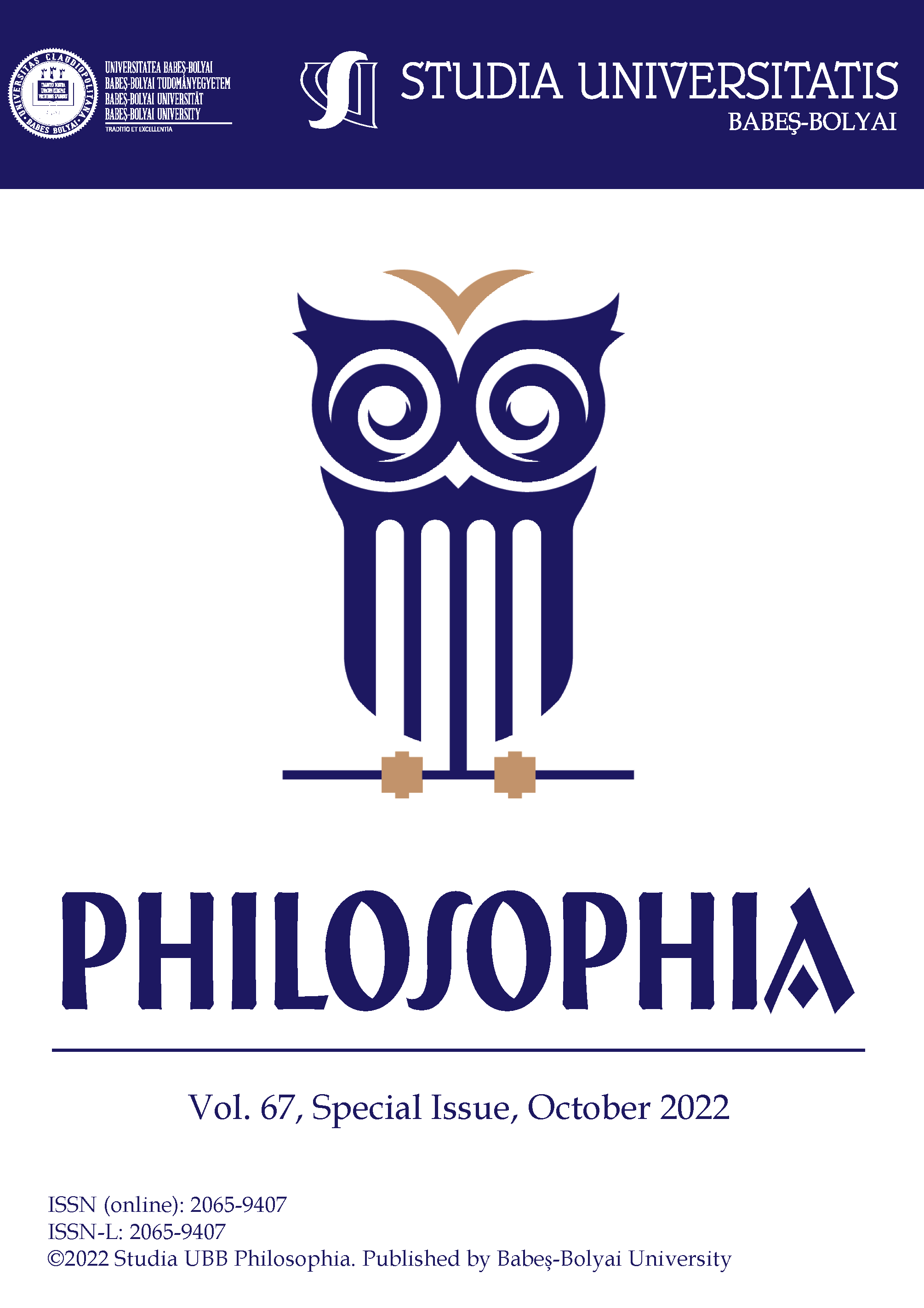BETWEEN PATHOLOGY AND WELL-BEHAVIOUR – A POSSIBLE FOUNDATION FOR TAME MATHEMATICS
DOI:
https://doi.org/10.24193/subbphil.2022.sp.iss.04Keywords:
foundations of mathematics, tame mathematics, clarity-based knowledge, philosophy of mathematical practice, incompleteness theoremsAbstract
An in-depth examination of the foundations of mathematics reveals how its treatment is centered around the topic of unique foundation vs. no need for a foundation in a traditional setting. In this paper, I show that by applying Shelah’s stability procedures to mathematics, we confine ourselves to a certain section that manages to escape the Gödel phenomenon and can be classified. We concentrate our attention on this mainly because of its tame nature. This result makes way for a new approach in foundations through model-theoretic methods. We then cover Penelope Maddy’s foundational virtues and what it means for a theory to be foundational. Having explored what a tame foundation can amount to, we argue that it can fulfil some of Maddy’s foundational qualities. In the last part, we will examine the consequences of this new paradigm – some philosophical in nature – on topics like philosophy of mathematical practice, the incompleteness theorems and others.
References
Baldwin, John T., “Entanglement of Set Theory and Model Theory - Eventual Behavior and Noise”, in Methodological Approaches in the Study of Recent Mathematics: Mathematical Philosophy and Mathematical Practice, 2018, http://homepages.math.uic.edu/~jbaldwin/pub/konsetangsli.pdf.
Baldwin, John T., “Model Theoretic Perspectives on the Philosophy of Mathematics”, Unpublished Draft, 2010, 1-14, http://homepages.math.uic.edu/~jbaldwin/pub/amstersh.pdf.
Baldwin, John T., “The dividing line methodology: Model theory motivating set theory”, in Theoria, 87.2/2021, 361-393.
Baldwin, John T., “The Reasonable Effectiveness of Model Theory in Mathematics”, 2019, http://homepages.math.uic.edu/~jbaldwin/pub/NDreaseffNov619.pdf.
Baldwin, John T., Model Theory and the Philosophy of Mathematical Practice: Formalization without Foundationalism, Cambridge University Press, 2018.
Buss, Samuel R., et al., “The prospects for mathematical logic in the twenty-first century”, in Bulletin of Symbolic Logic, 7.2/2001, 169-196.
Macbeth, Danielle, “Proof and understanding in mathematical practice”, in Philosophia Scientiæ. Travaux d’histoire et de philosophie des sciences, 16-1/2012, 29-54.
Maddy, Penelope, “Set-theoretic foundations”, in Andrés Eduardo Caicedo et al., Foundations of Mathematics, American Mathematical Society, 2017, 289-322.
Maddy, Penelope, “What do we want a foundation to do?”, in Stefania Centrone et al., Reflections on the Foundations of Mathematics - Univalent Foundations, Set Theory and General Thoughts, Springer Nature, 2019, 293-315.
Maddy, Penelope, Second Philosophy: A Naturalistic Method, Oxford University Press, 2007.
Manders, Kenneth, “Logic and conceptual relationships in mathematics”, in The Paris Logic Group, Logic Colloquium ‘85, Elsevier Science Publishers B.V., 1987, 193-211.
Morales, J.A. Cruz, et al., “Around logical perfection”. arXiv preprint, 1803.04909/2018, 1-15.
Poizat, Bruno, A Course in Model Theory - An Introduction to Contemporary Mathematical Logic, Springer Verlag, 2000.
Roman, Kossak, Mathematical Logic: On Numbers, Sets, Structures, and Symmetry, Spinger, 2018.
Van den Dries, Lou, “O-minimal structures and real analytic geometry”, in Current developments in mathematics, 1998.1/1998, 105-152.
Van Den Dries, Lou, “Classical model theory of fields”, in Deirdre Haskell et al., Model Theory, Algebra, and Geometry, Cambridge University Press, 2000, 37-52.
Voevodsky, Vladimir, “Univalent Foundations and Set Theory”, Talk at the Institute for Advanced Study in Princeton, 2013, https://www.math.ias.edu/vladimir/sites/math.ias.edu.vladimir/files/2013_ASL.pdf.
Woodin, Hugh W., “Strong Axioms of Infinity and the Search for V”, in Rajendra Bhatia, Proceedings of the International Congress of Mathematicians 2010 (ICM 2010) (in 4 Volumes) Vol. I: Plenary Lectures and Ceremonies, Hindustan Book Agency, 2010, 504-531.
Woodin, Hugh W., “The transfinite universe”, in Matthias Baaz et al., Kurt Gödel and the Foundations of Mathematics - Horizons of Truth, Cambridge University Press, 2011, 449-475.
Downloads
Published
How to Cite
Issue
Section
License
Copyright (c) 2022 Studia Universitatis Babeș-Bolyai Philosophia

This work is licensed under a Creative Commons Attribution-NonCommercial-NoDerivatives 4.0 International License.





